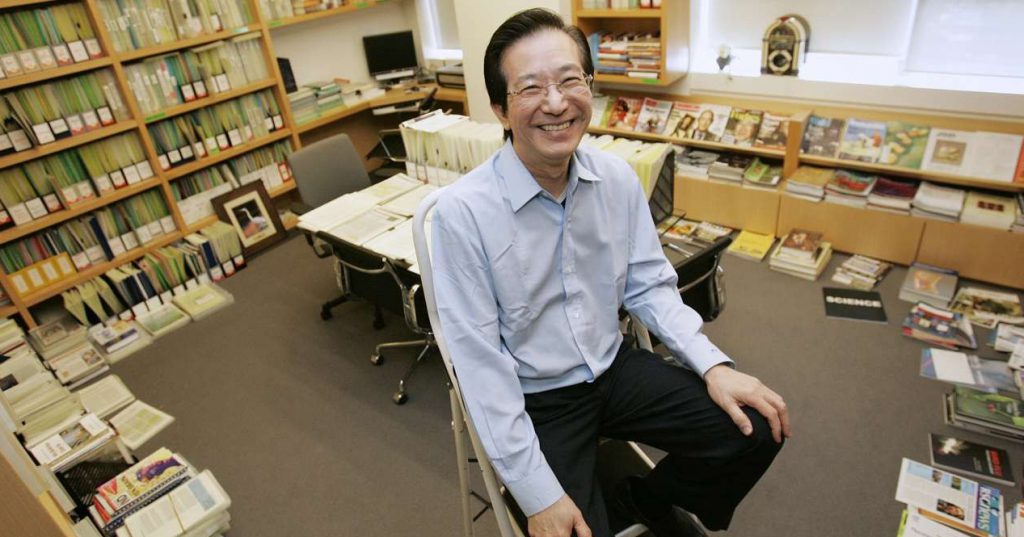Former chairman of the Economic Development Board (EDB), Mr Philip Yeo is probably not a household name among younger Singaporeans, but he’s someone who has led several important phases in the progress of Singapore.
Mr Yeo currently sits as the chairman of SPRING Singapore, the agency under the Ministry of Trade and Industry that deals with helping to build and grow local enterprises. But way before he was helping Singaporean companies to grow, he was helping the country to flourish.
Known as a no-nonsense leader who got things done, he is someone who has helped shape the military, economic and biomedical fields in Singapore, with notable accomplishments which included the creation of Jurong Island and the establishment of A*Star (Agency for Science, Technology and Research).
Recently, print magazine The Peak published excerpts from Mr Yeo’s book “Neither Civil Nor Servant” where he shared, through an interview, his leadership style and his thoughts on the current state of organisations.

1. “I Don’t Believe People Can Change”
A sentiment which he shared with the late Dr Goh Keng Swee is that he doesn’t believe people can truly change, therefore, to invoke change in an organisation, you must first remove everyone currently in it, and start anew.
If this means that every single manager must be fired for the organisation to move forward, then he will do it.
2. Do Not Be A Eunuch
He broke down the structure of a typical organisation down to a pyramid formed by three types of people – the emperor sitting at the top, the workers as the foundation, and the eunuchs between them.
The Eunuchs in this case is referring to the pencil-pushing, paper-shuffling upper ranks who are not doing any real work, and who do not understand what is happening with the workers.
These are the same people who are always in the presence of the leader, yet they are the ones who are the source of discontent from the ground. Mr Yeo describes this “Eunuch disease” as a cancer that is present in any pyramidal organisation.
3. “The Best Organisation Structure Is Flat”
Mr Yeo isn’t pinning all the blame on the Eunuchs though, rather, the entire notion of a pyramidal organisation is flawed.
As a leader, he would want to see those who are under him himself, not through a middleman. The problem with middleman is that they would often hide behind meetings and slideshow presentations, creating an unnecessary layer for those that require attention.
He would often advise CEOs and senior civil servants to visit companies, and also to spend time with workers.
4. “If You Cannot Tell Me In One Page Or In Five Minutes, It Means You Have No Clarity Of Thought”

He continues that due to how leadership has evolved, it has created a great number of inconveniences for anyone to lead an organisation.
Having too much paperwork is becoming a real problem for many countries, yet people seem to put the blame on reporting structures becoming too complex.
People forget that the one in charge can read the documents him or herself, and it need not pass through so many layers.
Again referencing the words of Dr Goh, if the papers cannot be written in simple English and summarised in a single page then it’s just a time wasting “grandmother’s story”.
5. There Must Be A Mix Of Obedient Kids And Troublemakers
Stability in an organisation must be balanced with some turmoil, because that’s how mavericks are born among leaders.
Without turmoil, he reveals that it will be boring. Honest and respectable people are the obedient kids – those who have to potential to be good Eunuchs. These are the same people, though, who will not create mavericks among themselves.
Mr Yeo describes himself as a troublemaker in school, often making noise after finishing his work and being made to stand at the blackboard.
The rest, as they say, is history.
6. Be Leaders, Not Administrators
Looking at today’s management in the parliament, he likened them more to administrators rather than leaders.
This is because ministers today easily overwork themselves, getting involved in every single day-to-day matters when these issues could be solved by the chairman of the different agencies and organisations.
This has also brought undesired repercussions to Admin Officers and permanent secretaries who, in his time, were…well, permanent.
Today, he calls them “temporary secretaries” who do not have the same wealth of experience as those before them, as they are rotated every few years.
7. Take A Page From The “Old Guards”

He feels that the Old Guards (the first generation of government leaders) were the real deal, politicians who built a nation from almost nothing, and were ones who don’t care about the nitty gritty details.
These were the people who simply got the job done at all costs – bringing in investments, creating jobs, and building an army to protect us. It was a time when decisions made were based on trust, and there was no such thing as “on the other hand” because it wasn’t up for discussion.
All they did was paint for everyone the big picture, and tasked the necessary parties a job and left them to do it.
8. Singaporeans Should Think About What’s Next
For Singapore to remain exceptional on the world stage, it must not only be left to exceptional individuals to lead us there.
Present leaders and future generations of Singaporeans too have a role to play in identifying new sectors for us to take advantage of, to create good sustainable jobs.
While major events like Formula One draw in tourists, it only creates seasonal jobs which disappear when the visitors go back a week later. We should instead be creating everyday industries.
As someone who once called out government scholars who broke their bonds, Mr Philip Yeo is definitely a man who doesn’t mince his words.
For the full uncensored excerpts from his book, head on over to the Peak magazine’s site here.










